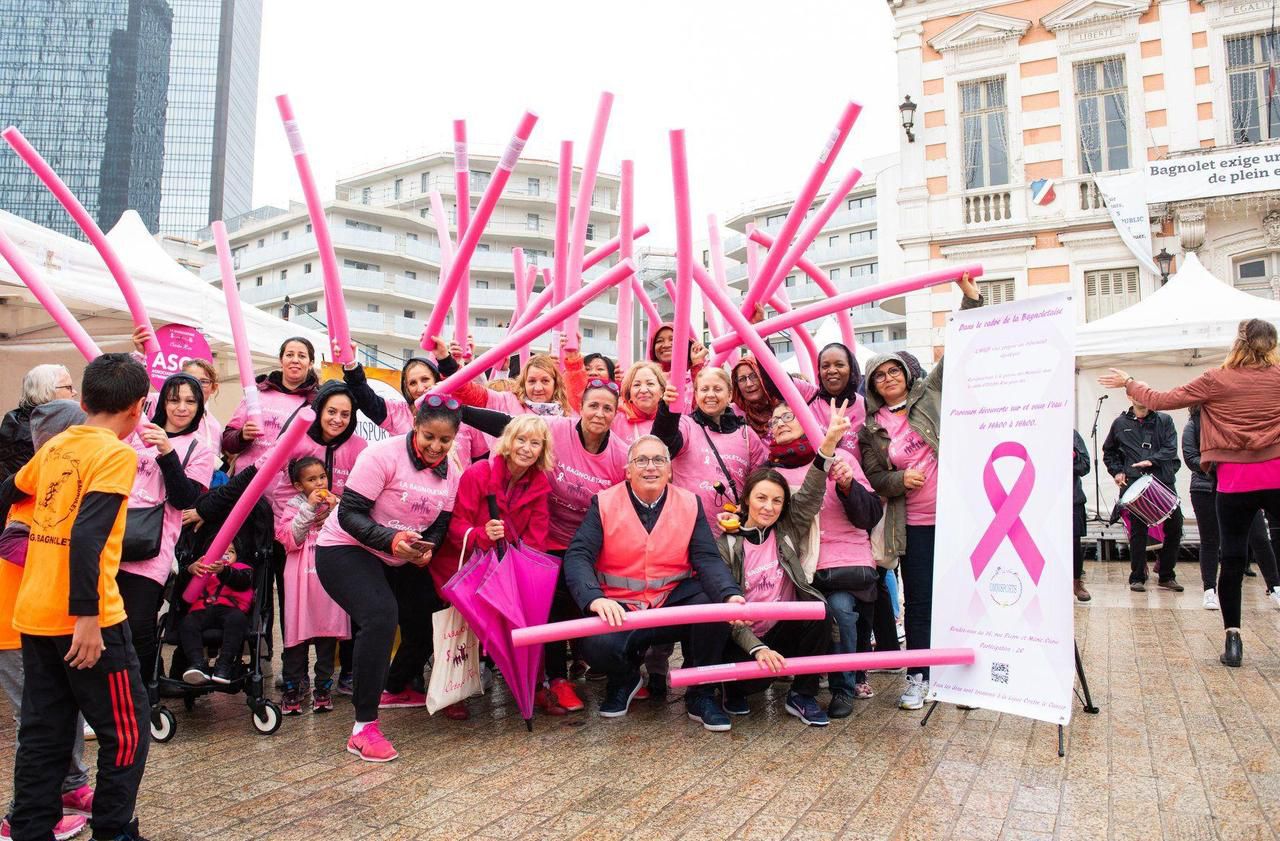Will cancer patients in Seine-Saint-Denis still be able to appeal to the League against cancer? The question is asked. In a department where donors are fewer than elsewhere, the structure fears that the health and then social crisis of Covid-19 will make its actions impossible. And yet, “the need is even greater with the coronavirus”, deplores its secretary general, Marie-Jeanne Fossati, while October Rose, a strategic month-event for the fight against cancer, is looming … in a total blur.
In Seine-Saint-Denis, the League against cancer – which lives only on its donations – collected 612,300 euros in 2019. That is to say 38 cents per inhabitant. The smallest amount in Île-de-France: for example, in Essonne, this figure rises to 1 199 700 euros, or 80 cents per capita. In Paris, it’s 4.5 million euros.
What will the state of donations be at the end of 2020?
The reason is well known: Seine-Saint-Denis is the poorest department in mainland France. “People have little income, they do not have the means to make a donation, even if the cause is close to their heart”, summarizes the general secretary of the association. In the same vein, in certain big cities of 93, like Saint-Denis, there is only 30% of taxable households. “However, one of the reasons for making a donation is often tax exemption. The inhabitants of 93 do not have this motivation ”. The stake is however immense, because the Covid-19 makes completely uncertain the future of the association.
“What will the state of donations be at the end of 2020? Will people still have money for us, especially during the actions for Pink October, or in December, which we know is the month where we give the most? With the Covid, money has flowed to other causes, including food aid and hospitals, analyzes Marie-Jeanne Fossati. This is a good thing, of course! But the income is not scalable! “
All the more so with the virus and the social crisis, households have become poorer. The partial unemployment set up in the spring, the termination of temporary contracts, odd jobs, or even moonlighting have lowered income, particularly, once again, in Seine-Saint-Denis. “Charities are no longer a priority”, adds the League against cancer.
Financial aid to patients on the rise
Another aggravating factor: the impossibility of organizing large physical collection events, distancing obliges. “For example, we do not yet know what the events of October-Rose will look like, says the League. The usual partners, such as town halls, large companies or shopping centers, will be more cautious than in previous years, ”she notes. Example: what will happen to the traditional big race organized in Noisy-le-Sec, which usually generates several thousand euros in donations to fight against crabs? “The city is reassuring, but, like all communities, awaiting instructions on the health protocol, notes the association. And will people want to participate? “
Concretely, a drop in donations could force the association to lay off its 4 full-time employees. Which would mean the end of the League’s actions in the department: support for the sick, financial aid, listening … According to Marie-Jeanne Fossati, the health and social crisis of Covid-19 has “increased the needs people with cancer ”.
Notably because at the height of the crisis, which particularly hit Seine-Saint-Denis, hospitals mobilized most of their resources on Covid-19 patients. Thus postponing most of the examinations of other pathologies… and in particular cancers. Not to mention the patients who, on their own, postponed or even canceled their appointment in the oncology department.
“Patients have symptoms, but tell themselves that they will consult later”
Thus, at the end of April, in the 39 establishments of the Assistance Publique-Hôpitaux de Paris (AP-HP), including Avicenne in Bobigny, the number of oncology surgeries fell by 28%! Even more drastic reduction (-50%) in endoscopies, major tools for screening digestive tumors.

:quality(80)/cdn-kiosk-api.telegraaf.nl/7792ab08-fd85-11ea-a2ec-02d2fb1aa1d7.jpg)
